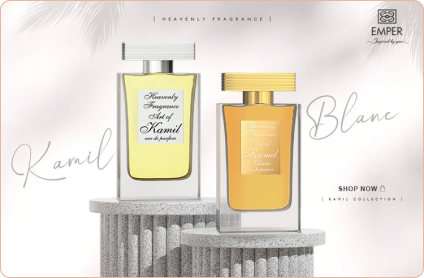Fragrance has a profound connection to memory and emotions, often evoking powerful sensations or vivid recollections. The sense of smell is uniquely tied to the brain’s limbic system, which is responsible for emotions, memories, and arousal. This is why a single scent can instantly transport us to a specific moment or trigger a rush of feelings we associate with the past.
The Science Behind Scent and Memory
Scent is processed by the olfactory bulb, which is closely connected to the brain’s amygdala and hippocampus—areas that handle emotions and memory formation. This direct link between smell and memory means that fragrances can bypass our conscious filters and evoke memories and emotions almost instantaneously. When we encounter a familiar scent, it often activates vivid mental images, making scent one of the most emotionally evocative senses.
How Fragrance Triggers Memories
Our memories are often tied to specific moments in time, and fragrance has the ability to bring those moments back to life. Whether it’s the smell of your grandmother’s perfume, the scent of the ocean from a summer vacation, or the fresh aroma of a particular flower you associate with a special day, these fragrances carry emotional weight. The brain’s ability to link certain smells to memories is a powerful tool in understanding how fragrance influences our emotional responses.
- Nostalgia: Fragrances are deeply tied to nostalgia. A single whiff of a familiar scent can instantly take us back to a time or place in our past, bringing with it a rush of emotions. For example, the scent of a particular flower may remind you of a wedding or a childhood summer. These emotional triggers help create strong bonds to specific experiences.
- Emotional Influence: Scent has the power to evoke specific emotional responses. A fresh, floral fragrance might bring feelings of calmness and serenity, while a warm, spicy scent can create a sense of comfort or nostalgia. The emotional connection to scent varies by individual, as personal experiences shape our perception of a fragrance.
- Memory Anchoring: Scents have the ability to “anchor” memories, making them easier to recall. When we smell something familiar, our brain links it to a specific memory or event, making it more tangible. The scent can act as a memory cue, triggering a cascade of related emotions and thoughts.
The Therapeutic Power of Fragrance
Many people use scent as a tool for emotional healing. Aromatherapy, for instance, uses essential oils to evoke specific emotions or to enhance well-being. Scents like lavender are often used to reduce anxiety, while citrus aromas can energize and uplift the spirit. The therapeutic benefits of fragrance highlight its strong connection to mental health and emotional stability.
Perfume as a Memory Keeper
Perfume can serve as a personal memory keeper, capturing moments in a bottle. Some people wear a signature scent to evoke a certain mood or to remember a particular time in their life. The fragrance may remind them of a special occasion, a loved one, or an unforgettable experience. Just like a photograph or a song, a perfume can act as a time capsule, preserving moments through scent.
Conclusion
The power of fragrance is undeniable. From triggering emotions to evoking memories, scent holds a unique position in our lives as both a sensory experience and a tool for emotional connection. Whether it’s the calming influence of lavender or the nostalgic aroma of a childhood home, fragrance helps us to not only remember but also feel. Understanding the link between scent and memory allows us to appreciate the emotional depth that fragrances bring to our everyday lives.




